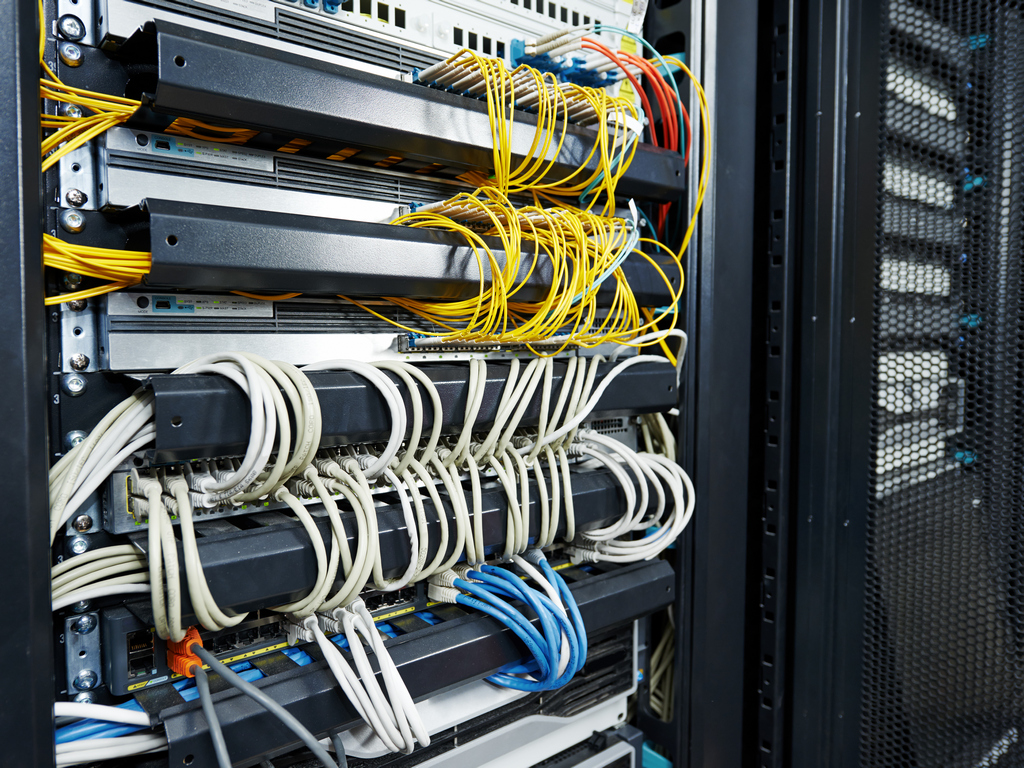No business success without investing in technology – Data centers turning data into profit
Source: eKapija
 Monday, 29.05.2017.
Monday, 29.05.2017.
 15:52
15:52
 Monday, 29.05.2017.
Monday, 29.05.2017.
 15:52
15:52
(Photo: Dmitry Kalinovsky/shutterstock.com)

The need for non-stop access to data means that it is necessary to invest more and more in the IT infrastructure enabling that access, and companies, institutions and organizations handling enormous amounts of data, information, numbers, documents or clients therefore need to include this item in their budgets as well.
– The business continuity and the need for uninterrupted operations make investments inevitable – Milovan Matijevic of Mineco Computers, the organizer of the recently held conference dedicated to data centers and the IT infrastructure, DATUM 2017, says for eKapija.
Whether it's a big IT company, a telecom operator, an internet provider, a bank, an insurance company, or even the state, quality and reliable operations entail serious investments in infrastructure.
– The more serious the business is, the more it depends on IT – Matijevic says and adds that serious companies are, as a rule, more aware of the importance of the technology and more prepared to invest in it.
He also says that the local industry accepts new technologies well, even though, as he adds, “our economic environment and several decades of crisis have led to a certain loss of awareness that a serious, big business requires serious, strong infrastructure”.
Nevertheless, he adds, the infrastructure itself has never been more reliable, of better quality, quicker or more available than it is now. This, as he emphasizes, is especially important for small and medium companies.
– Smaller businesses are in a very favorable position today, as they can now outsource the necessary infrastructure to the big players which own it. They can thereby practically skip over the entire technological cycle of investing in the IT segment, which enables them to benefit from the advantages of the technology under incomparably more favorable conditions – Matijevic says.
Vasilije Kodzopeljic, Sales Manager of the IT Division of Schneider Electric, agrees. He says for eKapija that there are several options for small and medium enterprises.
– They can, of course, invest in their own Data Center if they need to or if it's their main activity, but there are other solutions as well. They can can do it through an EDGE data center, through installing a micro data center, but also by putting their equipment in care of some other company, a telecom provider, for example, or by renting the equipment and the infrastructure from it – Kodzopeljic says.
For example, the entire Integrated Healthcare Information System (IHIS) of the Ministry of Health is built on the infrastructure provided by Telekom Srbija. The state has thereby saved on a multi-million investment, and the system itself was implemented in under a year and a half.
Kodzopeljic emphasizes that, regardless of the solution the company opts for, its needs to be prepared to invest constantly and continually.
Still, as Milos Stojkovic, Solutions-Product Manager at ENEL PS, says for eKapija, in Serbia, it is often the case that only the most necessary investments are made and that only the cheapest solutions are sought.
– Companies mostly opt for the smallest possible budgets, sufficient for getting something that merely works – he says and adds that, in Serbia, only a few companies strictly connected to the Data Center business have the means to place them within facilities intended for the purpose and capable of supporting the complete infrastructure.
– The rest, over 85% of them, are forced to improvise, placing them in residential or office buildings, which are not meant for that purpose. This is acceptable from the angle of the budget, but it doesn't provide the results it should – Stojkovic says.
Setting up a Data Center costs around EUR 10-12,000 per kW abroad, whereas, in Serbia, it's hard to implement a project over EUR 4,000 per kW.
(Photo: Bloomua/shutterstock.com)

– The point is that investing in everything around the Data Center makes sense, as the equipment and the data being kept there are several times more important that the investment itself.
When it comes to outsourcing this kind of infrastructure, Stojkovic says that telehousing is among the better solutions for SMEs, as it saves both time and money. Nevertheless, he advises caution.
– A client such as a bank or an insurance company cannot control what happens in that Data Center and therefore cannot know with certainty how the operator is treating the infrastructure and the client's equipment. For this reason, if problems occur, it's hard to determine who is responsible and how much it costs to solve the problem – Stojkovic says.
That the price can be exorbitant is shown by last year's research which says that a minute of downtime in a Data Center can cost nearly USD 8,900, whereas the cost of an individual halt in the operations can reach USD 740,000.
For this reason, our interviewees point out how important it is to maintain the system regularly, as well as to educate the employees.
– When we're talking about the service, it doesn't only pertain to maintenance and repair of the equipment. Training is a type of service as well. It's important to have trained staff, capable of reacting in extraordinary circumstances and sticking to defined procedures – says Vasilije Kodzopeljic, whereas Milos Stojkovic states that investments in people and their training, facility management, supervision and management in Serbia are small.
Even those whose main activities do not include cloud computing or the Internet of Things inevitably need reliable communications, secure data and efficient applications. This is why investing in modern technological solutions is increasingly less a matter of choice and more a necessity for a business to survive in an increasingly competitive market.
Milos Vlahovic
Companies:
 Schneider Electric Srbija d.o.o. Beograd
Schneider Electric Srbija d.o.o. Beograd
 ENEL PS d.o.o. Beograd
ENEL PS d.o.o. Beograd
 Mineco-computers d.o.o. Beograd
Mineco-computers d.o.o. Beograd
 Ministarstvo zdravlja Republike Srbije
Ministarstvo zdravlja Republike Srbije
 Telekom Srbija a.d. Beograd
Telekom Srbija a.d. Beograd
Tags:
Schneider Electric
Mineco Computers
Milovan Matijevic
Data Centers
Data Center
DATUM 2017
small and medium companies
Vasilije Kodzopeljic
EDGE data center
micro data center
Integrated Healthcare Information System IHIS
Milos Stojkovic
telehousing
colocation
downtime
cloud computing
Internet of Things
IoT
storing data
data processing
data utilization
digital transformation
IT infrastructure
Comments
Your comment
Most Important News
Full information is available only to commercial users-subscribers and it is necessary to log in.
Follow the news, tenders, grants, legal regulations and reports on our portal.
Registracija na eKapiji vam omogućava pristup potpunim informacijama i dnevnom biltenu
Naš dnevni ekonomski bilten će stizati na vašu mejl adresu krajem svakog radnog dana. Bilteni su personalizovani prema interesovanjima svakog korisnika zasebno,
uz konsultacije sa našim ekspertima.


 Izdanje Srbija
Izdanje Srbija Serbische Ausgabe
Serbische Ausgabe Izdanje BiH
Izdanje BiH Izdanje Crna Gora
Izdanje Crna Gora


 News
News






